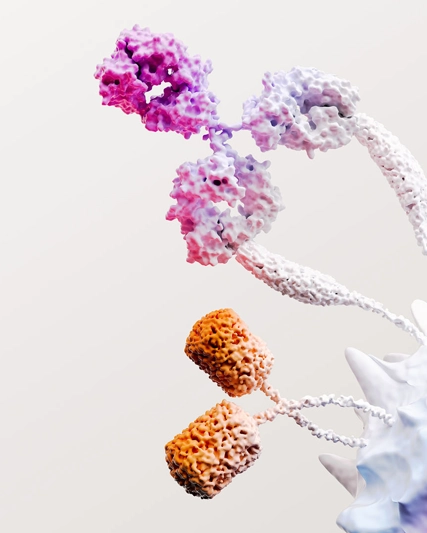GSK provides an update on Zejula (niraparib) US prescribing information
Issued: London, UK
For media and investors only
GSK plc (LSE/NYSE: GSK) today provided an update that at the request of the US Food and Drug Administration (FDA) it will restrict the second-line maintenance indication for Zejula (niraparib) to only the patient population with deleterious or suspected deleterious germline BRCA mutations (gBRCAmut). The US first-line indication of Zejula remains unchanged for the maintenance treatment of adult patients with advanced epithelial ovarian, fallopian tube, or primary peritoneal cancer who have a complete or partial response to platinum-based chemotherapy.
This decision follows an FDA review of the final overall survival (OS) analysis of the ENGOT-OV16/NOVA phase III trial, which served as the basis for the approval of the second-line maintenance indication. In the final OS results from the NOVA trial, the secondary endpoint of OS demonstrated a hazard ratio (HR) of 1.06 (95% CI: 0.81-1.37) in the non-gBRCAmut cohort.
NOVA is a randomised, double-blind, placebo-controlled phase III trial of niraparib, an oral, once-daily poly (ADP-ribose) polymerase (PARP) inhibitor for the maintenance treatment of women with platinum-sensitive recurrent ovarian cancer. The primary endpoint of the NOVA study was progression-free survival (PFS), evaluated as two independently powered cohorts (gBRCAmut and non-gBRCAmut); results demonstrated the clinically meaningful and statistically significant benefit of niraparib in both cohorts and across the HRD subgroups in the non-gBRCAmut cohort. Secondary endpoints were safety and long-term exploratory endpoints, including overall survival. GSK is in ongoing discussions about these and other emerging OS data with health authorities worldwide.
About ovarian cancer
Ovarian cancer is the eighth most common cancer in women worldwide.[i] Despite high response rates to platinum-based chemotherapy in the front-line setting, approximately 85% of patients will experience disease recurrence.[ii] Once the disease recurs, it is rarely curable, with decreasing time intervals for each subsequent recurrence.
About Zejula (niraparib)
Zejula is an oral, once-daily PARP inhibitor currently being evaluated in multiple pivotal trials. GSK is building a robust clinical development programme by assessing activity across multiple tumour types and evaluating several potential combinations of Zejula with other therapeutics. The ongoing development programme includes several combination studies, including the FIRST phase III trial assessing niraparib in combination with dostarlimab, a programmed death receptor-1 (PD-1)-blocking antibody, as a potential treatment for first-line ovarian cancer maintenance and the phase III ZEAL trial assessing niraparib in combination with standard of care for the maintenance treatment of first line advanced non-small cell lung cancer. GSK also is evaluating niraparib in HER2-negative BRCA-mutated or triple-negative breast cancer.
Please see accompanying US Prescribing Information.
About GSK
GSK is a global biopharma company with a purpose to unite science, technology, and talent to get ahead of disease together. Find out more at gsk.com/company
Cautionary statement regarding forward-looking statements
GSK cautions investors that any forward-looking statements or projections made by GSK, including those made in this announcement, are subject to risks and uncertainties that may cause actual results to differ materially from those projected. Such factors include, but are not limited to, those described in the Company's Annual Report on Form 20-F for 2021, GSK’s Q3 Results for 2022 and any impacts of the COVID-19 pandemic.
References
[i] Worldwide Cancer Data. World Cancer Research Fund. https://www.wcrf.org/dietandcancer/cancer-trends/worldwide-cancer-data. Updated January 10, 2022. Accessed July 2022.
[ii] Lorusso D, Mancini M, Di Rocco R, Fontanelli R, Raspagliesi F. The role of secondary surgery in recurrent ovarian cancer [published online August 5, 2012]. Int J Surg Oncol. 2012. doi:10.1155/2012/613980. Accessed September 2022.


